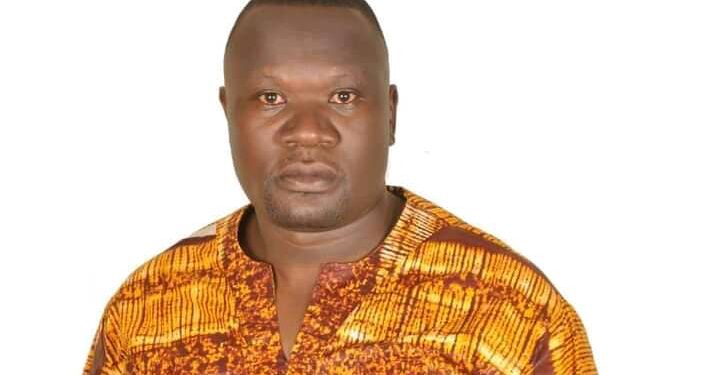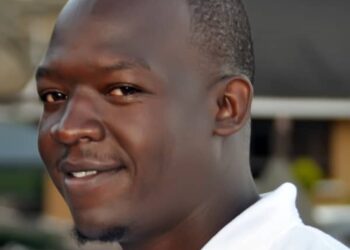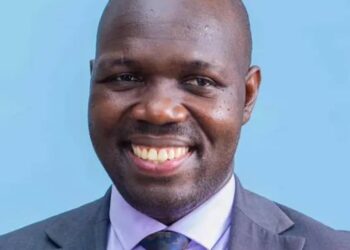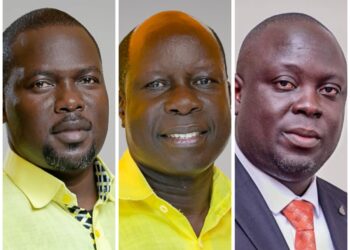The outcome of Uganda’s general elections has never been as predictable in the country’s post independence history as one can safely bet on the upcoming one of 2026. The National Resistance Movement ( NRM) and most predictably, Party Chairman, Yoweri Kaguta Museveni will be looking to bag a record seventh elective term to highlight the unprecedented, unparalleled trust Ugandans have in the fundamental transformation the leadership has had on the country over the last nearly four decades.
All the glittering achievements notwithstanding, voices calling for political change have neither been unavailable despite the ease with which the ruling side has crashed them at the ballot on every occasion since 1996. Robert Kyagulanyi Ssentamu of the National Unity Platform( NUP) has already indicated he will challenge General Museveni for a second time at the ballot. Col Kizza Besigye, who has tried on four separate occasions in the past falling short on each one of them is in deep preparations for a new political vehicle after the disintegration of his flagship Forum for Democratic Change. It is, however, unclear whether or not he will seek to be on the ballot for a record fifth time in 2026. Other probable candidates include; Maj General Gregory Mugisha Muntu of the FDC splinter group- Alliance for National Transformation ( ANT), Ex sports scribe, Joseph Kabuleta of NEED, among others.
That a stable NRM whose charismatic leadership under general Museveni is best placed to defeat whoever will be in the same queue for the Presidency and any lower positions has never been as clear as it keeps manifesting. While internal cohesion continues to thrive within the ruling party, cracks in the opposition have exacerbated to escarpment much to the frustration of the change seeking faithful.
In NUP, the little said about their internal wranglers seems the better. The perceived witch hunt occasioned against Hon Mathias Mpuuga- one of their most respected leaders at the rank of Deputy President has left the establishment at the blink of disintegration. For the very first time, we have seen senior members putting Mr Kyagulanyi on the sword to revisit his draconian management approach. Kimanya Kabonera MP, Dr Abeid Bwanika has fearlessly exposed Kamwikya with scores of allegations including nepotism, lack of transparency, tribalism, conspiracy to destroy emerging leaders who make the somehow inept top leadership feel threatened, among others. In fact, Bwanika and other internal dissidents feel Mpuuga’s woes emanate from this cowardly fear.
Not only the poor methods of leadership attracted resistance from the combative crop of leaders like Bwanika but also the most gentlemanly like Medard Lubega Ssegona. Ssegona has characteristically called out his party for its unprincipled denigrating of their leaders which suggests that the likes of himself and others branded ” suited elites” are no longer feel safe. In Masaka, the impact of the saga on the young group has been more evident. At the PLU baraza organised by General Muhoozi Keinerugaba early this year, scores of NUP leaders were seen ditching the red berets of NUP and enthusiastically swappingtowards the ruling side in a manner observers saw as the beginning of the road to the complete inhalation of party in one of their most perceived strongholds in the country.
Needless to mention, FDC has been a shadow of its former self of late. Accusations and counter accusations of betrayal have rocked the once upon a time thriving outfit at Najjanakumbi. Nathan Nandala Mafaabi and Patrick Amuriat Oboi- Secretary General and Party President respectively have been accused of ” selling the party to Museveni while the dissenting group led by founding president, Kizza Besigye has been accused of selfishness and unsuccessfully trying to give the party to Bobi Wine on a sliver plate. The outcome has been far reaching. Besigye and his group are planning to form a new party with nationwide consultations ongoing, which by the way, has been said to be a formality since the decision to go separate is said to have been made a long time ago.
Questions have deservedly been raised by political pundits about whether now is the right time for new political formations to be formed at a time when cohesion is a badly needed ingredient in the worryingly fragmented side. What garments more concern from every Ugandan is that those who would have been expected to spearhead efforts to unity, the so called fathers of the revolution are the key masterminds of the dismantling gameplan.
On the other hand, however, President Yoweri Museveni has attributed the National Resistance Movement (NRM) government’s longevity in power to four core principles. These principles have allowed Uganda to build strong institutions that guarantee peace and stability. Let’s delve into these principles:
Patriotism: The NRM emphasizes love for Uganda. By prioritizing the country’s interests over identity politics (such as ethnicity or religion), they’ve fostered a sense of national unity? Pan-Africanism: The NRM promotes a love for Africa as a whole. This broader perspective encourages cooperation and solidarity among African nations.
Socio-Economic Transformation: The NRM focuses on improving the well-being of Ugandans. This includes providing essential services like health, education, and wealth creation.
Democracy: The NRM advocates for democratic governance. While critics argue that this principle has been challenged during Museveni’s long tenure, the party still emphasizes democratic institutions.
These principles have allowed the NRM to build strong institutions, including the Patriotic Political Parties, the Army, and the Judiciary. As a result, Uganda’s economy has grown significantly, from a mere $1.5 billion in 1986 to $48 billion by the end of June 202312. Museveni’s ability to navigate coalition-building and use patronage effectively has also contributed to the party’s quarter-century hold on power.
Given this context, it’s clear that a combination of strategic principles and political maneuvering has enabled the NRM’s long-lasting rule in Uganda. With the obvious fault lines emerging in the alternative political formations, it’s a safe bet that NRM will prolong its reign for another five years and certainly more as Ugandans consciously query into the future of their blossoming country.
The writer is the Deputy Resident City Commissioner for Soroti East Division in Soroti City.
Do you have a story in your community or an opinion to share with us: Email us at editorial@watchdoguganda.com













